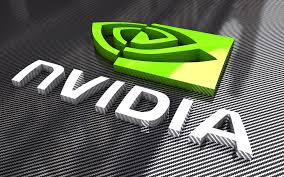Nvidia Corp has personified the artificial intelligence fervor of the U.S. market more than any other stock, leaving Wall Street vulnerable to the swings of its erratic shares.
In one of the most eagerly awaited earnings reports in recent memory, the semiconductor manufacturer, whose chips are regarded as the industry standard in artificial intelligence, predicted fiscal first-quarter sales above projections after the market closed on Wednesday.
The company’s earnings report in the coming days could provide insight into whether investors’ appetite for risk remains strong in the stock market, which has soared to all-time highs despite rising Treasury yields and waning expectations that the Federal Reserve will start lowering rates in the coming months. The company is a bellwether of the AI industry and is heavily weighted in U.S. indexes.
Laptops 1000Paul Marino, chief revenue officer of GraniteShares, an exchange-traded fund manager linked to Nvidia’s performance, warned that “the response to the numbers could be seen as a referendum on the market itself.” “If Nvidia exceeds forecasts and the stock continues to decline, that will indicate that investors are uneasy.”
Pre-market trade on Thursday saw a 12% increase in the company’s shares, putting it on the verge of a $2 trillion market capitalization.
Nvidia’s stock tripled in 2023 and has increased by almost 40% this year due to growing enthusiasm about artificial intelligence’s commercial prospects. Because of this, it has outperformed the so-called Magnificent Seven group of growth and technology firms, which have been the main drivers of the market during the previous 12 months.
In the middle of last year, Nvidia’s market capitalization surpassed $1 trillion. It overtook Alphabet and Amazon earlier this month to take the third spot among U.S. companies by market value; but, the company’s recent decline has sent it back to fifth place.
Due to its higher market value, the corporation has a considerable influence on important indices such as the S&P 500. By Tuesday’s close, over 25% of the 4% advance in the index—which reached a record high earlier this month—had been driven by Nvidia’s rising shares.
Nvidia’s ascent is the result of the company posting significant gains in profit and revenue during the surge in artificial intelligence, which has increased demand for its chips. In its most recent fiscal year, revenue more than doubled to over $60 billion, while net income skyrocketed to nearly $30 billion.
Laptops 1000Its share price has surged, but its forward earnings valuation has decreased due to the sharp rise in analysts’ profit projections. According to LSEG data, the company traded at 31 times forward earnings ahead of Wednesday’s release, down from 47 times earnings a year earlier.
Data from options analytics site Trade Alert shows that as of late Wednesday, Nvidia options were pricing a swing of almost 10% in either way in the two trading days that followed its findings. A 10% shift in Nvidia’s almost $1.7 trillion market capitalization would be about equal to the market caps of Qualcomm and Comcast respectively.
In the days that followed Nvidia’s quarterly results in February and May of last year, the company’s shares shot up 14% and 24%, respectively, but in more recent quarters, the stock’s response has been more muted.
Options bets on the potential movement of Nvidia shares over the next several days were widely spread; some traders were aiming for a dip below $500 by this coming week, while others were banking on a nearly double increase to $1,300 by Friday. On Wednesday, Nvidia’s stock finished at $674.72.
Nvidia has become the face of artificial intelligence (AI), but it hasn’t been the only stock to gain from enthusiasm for the field. Although both equities have lately declined, shares of firms like Arm Holdings and Super Micro Computer have increased recently.
Businesses from a wide range of industries are increasing their exposure to artificial intelligence, even outside of the semiconductor and technology sectors. In January and February, 38% of S&P 500 quarterly conference calls included artificial intelligence (AI). This is a marginal increase over the June quarter when AI became a popular industry and market issue.

















